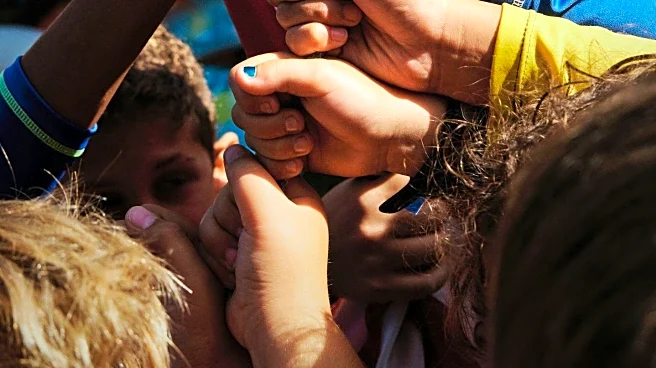What's Happening?
The 24th annual 'Adopt a Child for a Day' event took place in Manhattan Beach, where hundreds of underserved children were paired with mentors. This initiative aims to provide guidance and support to children who may lack access to positive role models in their daily lives. The event is part of a broader effort to address the needs of underserved communities by fostering relationships that can inspire and empower young individuals. Participants in the event included volunteers from various backgrounds who dedicated their time to engage with the children through activities and discussions, offering them a day of fun and learning.
Why It's Important?
Events like 'Adopt a Child for a Day' play a crucial role in bridging the gap for underserved children who may not have access to mentorship and guidance. By connecting these children with mentors, the event helps to build self-esteem, provide educational support, and encourage positive life choices. Such initiatives can have a lasting impact on the children’s development, potentially influencing their future educational and career paths. Moreover, the event highlights the importance of community involvement in addressing social inequalities and fostering a supportive environment for all children, regardless of their socio-economic background.
What's Next?
Following the event, organizers and participants are likely to evaluate the outcomes and gather feedback to improve future iterations. There may be efforts to expand the program to reach more children and involve a wider range of mentors. Additionally, the success of this event could inspire similar initiatives in other communities, aiming to replicate the positive impact seen in Manhattan Beach. Stakeholders, including local government and educational institutions, might consider supporting or partnering with such programs to enhance their reach and effectiveness.
Beyond the Headlines
The 'Adopt a Child for a Day' event also raises awareness about the broader issue of mentorship and its role in child development. It underscores the ethical responsibility of communities to support their youth and highlights the potential for mentorship to address systemic challenges faced by underserved populations. Long-term, such programs could contribute to reducing educational disparities and promoting social mobility.









